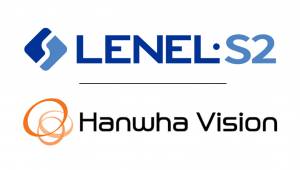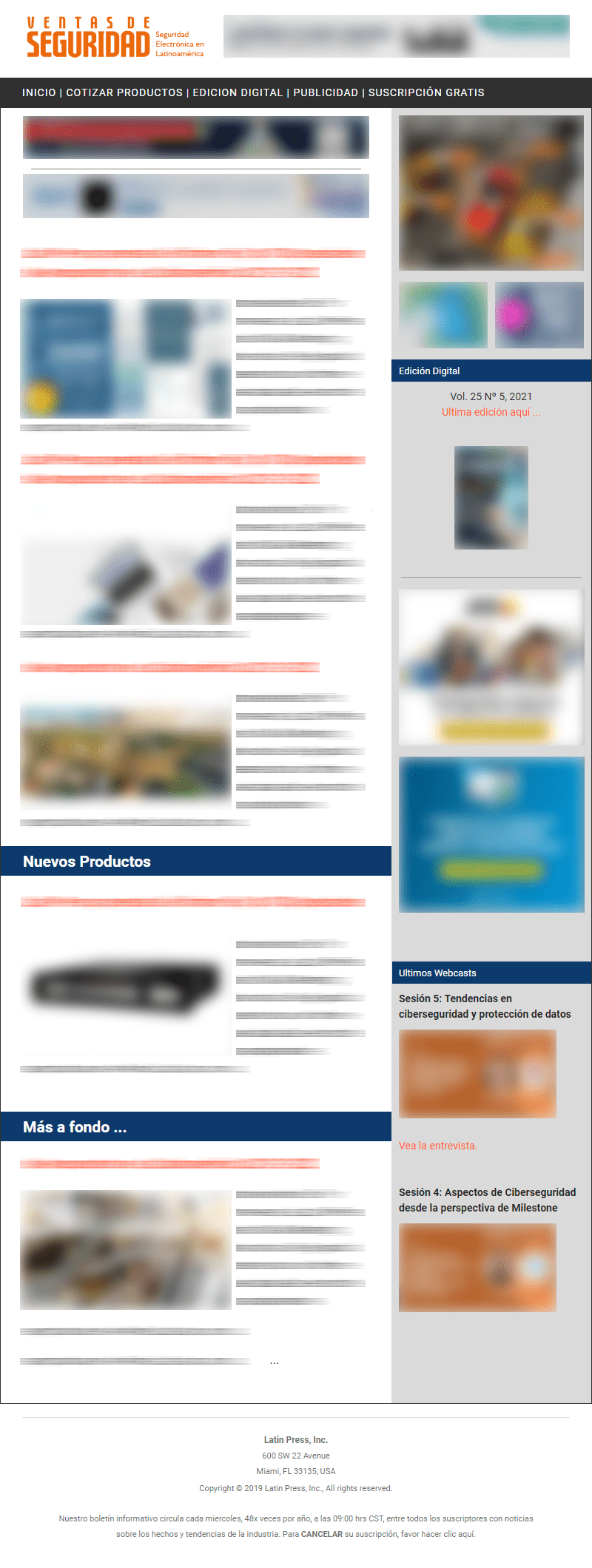 A vision of the current forms of training and knowledge existing in our industry.
A vision of the current forms of training and knowledge existing in our industry.
by Eng. Germán Alexis Cortés H.*
In the last 15 years, I have been alternating my work as a designer engineer in the area of electronic networks, with providing specialized training in the area of electronic security throughout Latin America. I am fortunate to have accumulated all that experience and today I want to tell you my impressions about the phenomenon that is happening in the training of technicians and engineers in the safety guild.
I mean that every time, technological means become more present and important in routine learning. The times when only a "master" taught us loudly with masterful presentations, seem to be old, however, I want to remind you that only 20 years ago, the term e-learning was not known; The Internet was used by less than 0.01% of humanity and there were less than 200 million cell phones in the world.
Obviously in recent years the situation has changed by leaps and bounds and things have been transformed in a forceful way for all humans. Today there are nations with an internet coverage of more than 80% of their population and there are already more cell phones working than inhabitants in the world. Then it is normal to assume that learning processes using technology also change.
The Internet has modified, among many things, the way we learn, how we investigate and how we form our brain. The presence of e-learning platforms (virtual learning) and learning videos (free or paid) distributed throughout the network, has made many people rethink their way to continue training professionally. The electronic security guild has not been oblivious to this situation. Although there are many benefits, there are also failures that have occurred in other industries, which we must not repeat and that we still have time to amend.
In Latin America, recursion, joy and the great imagination of the inhabitants abound; but we lack discipline and love to skip the rules and the regular conduit (this is where the corruption that has us prostrate in underdevelopment begins). It is part of our idiosyncrasy. This is how we must understand it, but we must correct our shortcomings and highlight our capabilities, in a constant process of improvement.
The problem
I have noticed that the professional (engineers, technicians, salespeople, managers) of electronic security, having access to internet tools routinely, decides – erroneously – to move away from traditional training processes and engages in empirical processes, complemented by self-taught training. In this way, the little offer of formal training is compensated – with respect and admiration for ALAS, Alfil and a handful of universities and institutions.
I must admit, that doing this in a messy and unqualified way is better than doing nothing and stagnating. The drawback is that there is no way to self-evaluate, nor is there a training plan, nor is there methodology, nor is there order, but above all, there is no way to know indicators that tell us the degree of training of a person. That is, there is no "a rod, to be measured"... and as a maxim in administrative management says: "Everything that is not measured, cannot be improved".
An efficient training program, makes a knowledge test at the beginning of the cycle to detect the shortcomings and pre-requirements that are needed to have good foundations. He does a knowledge test at the end, to verify that the transfer of knowledge was actually done. And he recommends testing from time to time, to ensure that what we have learned has not been forgotten and to remember that the process of human formation never ends, therefore, we must update ourselves permanently, especially when technology changes vertiginously.
The lack of traditional training with a complete educational plan, makes all the tools offered by manufacturers or companies in general, are lost in an immense virtual library that no one knows how to go through and how to search.
On many occasions, self-deception and innocence is on the surface. I have lived it in numerous situations, when professionals with more than 10 years of experience in the guild, attend a conference of mine and realize that the concept was poorly focused or that they simply "believed" they knew things, but in reality they did them in a different way and sometimes totally contrary to the recommendations of manufacturers. Stephen Hawking called this, "The Illusion of Knowledge"; that is, you just think you know. This is more dangerous than not knowing.
I remember the case of an engineer, head of a technology group, who was offended because his superiors forced him to do the basic CCTV course, to obtain the certification that was delivered. Surprisingly, the engineer missed the exam and had to repeat the course. Fortunately this engineer took a proper attitude, learned the lesson and I attest that today he is a better professional.
And what about those professionals who have been in the guild for less than 2 years, where their training has been totally empirical, based on the transfer of knowledge from their co-workers and in the best case, on the sporadic reading of technical manuals, in a language other than the native one?
Then, and that is where new technologies play an important role, it is dedicated to seeing some more technical manuals on the Internet, to look for documents (PDF or PowerPoint type) of free distribution or simply to watch videos on YouTube or similar, about installation techniques and operation of some equipment.
He finds a lot of material, and that's very good, but there is no order, no planning. And we come to a new problem: no one knows if what they are learning is true or not. He has already filled his head with knowledge that in the end confuses him and decides to return to reality: ..."to the manual of the team that he must deliver working in the final delivery of tomorrow".
Not understanding many of the advanced concepts, your brain decides to skip them – that's how our human brain works – and continue on the most basic principles. Leaving the system you are installing, with the minimum necessary and underusing the rest of the capabilities for which the end user has already paid, because the seller insisted on showing them as an added value ...
Ethics, ethics again
Are we really aware of our immense shortcomings in technical knowledge and the deceptive way we construct our experience? (Please read the article on ethics, in the previous edition.)
Sometimes the professional who researches on the internet finds a forum of specialists... where they will surely answer your concern; but in the end he discovers that the specialist who responds is simply another professional who has more free time, and although he may have some experience, sometimes he is just as disoriented as everyone. Then knowledge spreads in an inaccurate, degrading way and the original concept is totally changed. Unfortunately, sometimes, professionals are part of this game directly endorsed by the factories, which have not had a formal technical education process.
The martyring journey on the internet, leads the professional to pay a few dollars for an e learning course that turns out to be a series of cold and tasteless PDF's; or a free course based on commercial webinars that all they intend is to sell their brands, regardless of the fundamentals and real concepts.
So many things that we see out there – on the internet – turn out to be a fiasco and we continue with immense training gaps in our professionals.
To complete, factories are dedicated to offering online business tools, which "magically, do the necessary calculations", but never teach the professional to really understand the concepts. It's like suppressing the teaching of mathematics, because the cell phone calculator does it all.
Trainings, Trainings, Trainings
Business Technical Training must be a planned process, which is carried out within an organization, responding to its own needs, which seeks to improve the skills, knowledge, attitude, values or behaviors of its work team; to be more efficient in the operation of the company.
It is required continuously and permanently, especially working in technology; but it is imperative, when it is discovered in performance appraisals, that there is some difference between what the operator, technician, engineer, salesperson or manager, should know to perform the intended work and what he really knows and applies.
The first thing I ask myself is: do the human resources managers in your company really value the performance of their employees? I must remember that one of the main responsibilities is to maintain an efficient work team anticipating market changes, anticipating training according to the shortcomings of your team and taking into account the strengths of each member and the joint potential to be developed.
Changes in different technologies significantly alter what each member should know and how they should act. Today it is required that each member of the team must be prepared to occupy the functions required by the company and not only for which he was hired. The distribution of knowledge is a way of "shielding" the investment that is made in knowledge and mitigates the "dark" risk of not training, because the official can leave.
The planned and academic training (content, activities, intensity, evaluation), must obey the guidelines and objectives of the company. It is intensively required after induction to newly admitted employees; but also in a continuous and detailed way, to the personnel that is already operating to raise the level of knowledge, to train and discover the supervisors and bosses. It is the duty and responsibility of the directors of a team, to properly develop its members, in order to demand results; but also to be able to innovate and improve the operation.
Note: The second part of this interesting article will be published soon, or find it in the print edition Vol 23-5.
* Germán Alexis Cortés Hernández is a Colombian electronic engineer, president of the Insetrón Consulting company – Electronic Networks Consulting. Instructor of WINGS and the ALFIL academy. He has participated in numerous Building Automation projects in Latin America. [email protected] - [email protected]

























Leave your comment